
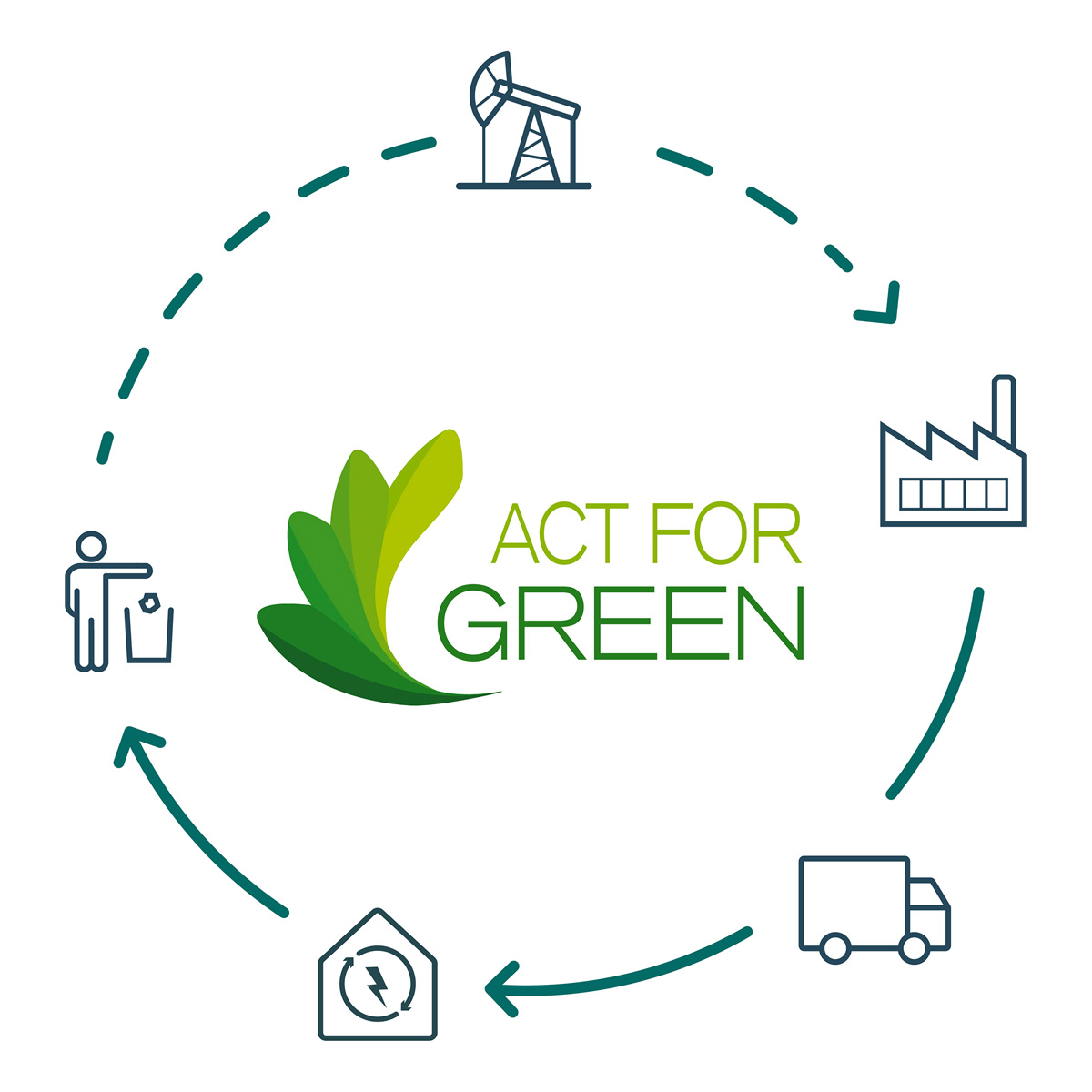
In an era where sustainability is no longer just a buzzword but a way of life, the window furnishings industry is always evolving to meet the growing demands for eco-friendly window covering solutions. It comes as no surprise that homeowners are turning to sustainable options for their homes. From energy-efficient appliances to eco-friendly building materials, the choices made today have a profound impact on the future.
Somfy – Leading with action
Globally, the building industry is one of the main sources of the world’s CO2 emissions, and as a key player in home equipment for over 50 years, the SOMFY Group is committed to doing its part in embracing sustainable growth and reducing the environmental footprint of its products and services.
“Our duty is to contribute and preserve as much as possible of the planet for the future generations”, says Somfy Group Chairman Jean Guillaume Despature.
“Our solutions contribute to improving the building industry’s energy performance.”
Sustainable development is central to Somfy’s business strategy and with end-users consuming more responsibly, companies need to be committed to a sustainable future.
Somfy’s top priority is, by 2030, to have reduced CO2 emissions by 50% compared to 2019. The initiative ties in with Somfy’s global ambition for 100% of products sold in 2030 to be labelled Act For Green.
Act For Green is Somfy’s suite of eco-designed products, developed to reduce environmental impact through an approach of eco-responsibility to buildings, products, and teams.
The voluntary initiative considers the product lifecycle: from the extraction of raw materials to end of life.
Over the years, this list of eco-friendly products has grown to include motors, sensors, remote controls, and accessories.
Faced with constant climatic, environmental, and social challenges around the world – citizens, institutions and businesses are coming together to create a different path; one marked by solutions that change the way we produce, consume and live day-to-day.
Locally, Somfy Oceania continues to promote sustainability and energy efficiency with its digital energy savings calculator – SoCool.
“With energy bills and interest rates on the rise, end-users are looking for ways to save on their annual bills and just by answering a few questions, our tool can predict the potential carbon emissions, time, and money a homeowner could save by using Somfy motorised solutions in their home,” says Somfy Oceania’s Marketing Manager Mary Ladu.
“The tool forms part of our Make the Move digital lead generation campaign for Somfy Retail Expert Partners and helps us understand what motivates end users to switch from manual to automated window coverings.”
Scan the QR code to see Somfy’s SoCool Energy Savings Calculator in action.

Norman – Focus on sustainable manufacturing
Norman says it proudly upholds its commitment to sustainability, an ethos that shapes the company’s manufacturing processes in significant ways.
“Our factory employs green initiatives to generate sufficient energy to meet 80% of our requirements. We also repurpose sawdust as a heat source for our kilns during the wood conditioning process, resulting in minimal waste.” Brandon Rigby, Norman General Manager told WFA.
“This approach highlights our emphasis on resource efficiency and waste reduction. By utilizing sustainable energy sources and repurposing materials, we not only minimise our environmental impact but also contribute to the concept of a circular economy.”
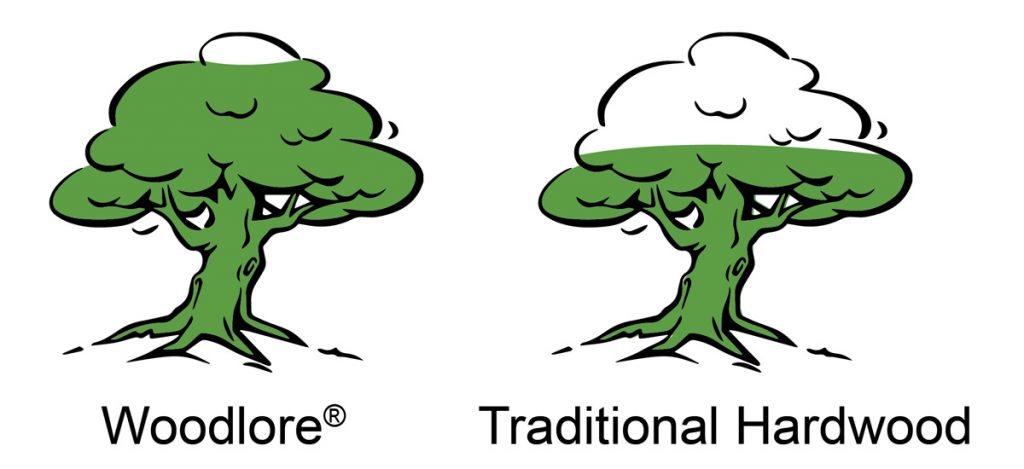
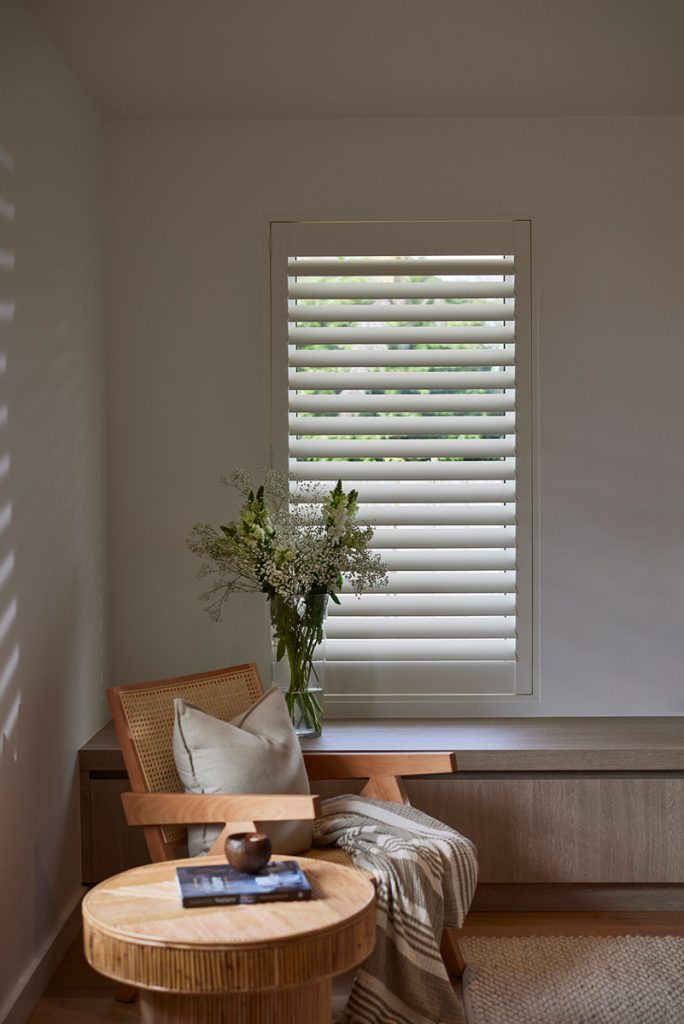
An essential aspect of Norman’s sustainable manufacturing practices is the method by which we quarter saw our louvers. Rigby explains, “We quarter saw our louvers, not only for the aesthetic appeal of the grain when stained, but also because it is the most effective way to control warping or twisting, leading to a durable, long-lasting product.” This dedication to quality and durability reduces the frequency of replacements, thereby lessening the environmental impact associated with production and disposal.
Norman’s use of Woodlore as a sustainable alternative to 100% timber is another key aspect of its commitment to resource efficiency. As Rigby points out, “Woodlore is a more sustainable option than 100% timber because it allows us to utilise more of the tree when creating sheets of material for shutter production.” This approach minimises waste and optimises the use of raw materials, aligning with our overarching goal of mitigating our environmental footprint.”
Wilson Fabrics – Full control allows for greener production
Peta Fitzgibbon, the General Manager of Wilson Fabrics, says that being sustainable is extremely important to Wilson and is part of the company’s brand DNA.
“Sustainable developments have always been a part of our process path because we believe in taking care of the environment, being environmentally mindful and responsible is not only great for the environment but is also beneficial for our health.”
“Wilson Fabrics is proud to have our own mill to produce our Australian Made Blind and Drapery ranges.”
“The mill is Greenguard accredited for its low-emissions and contributes to improve indoor air quality.”
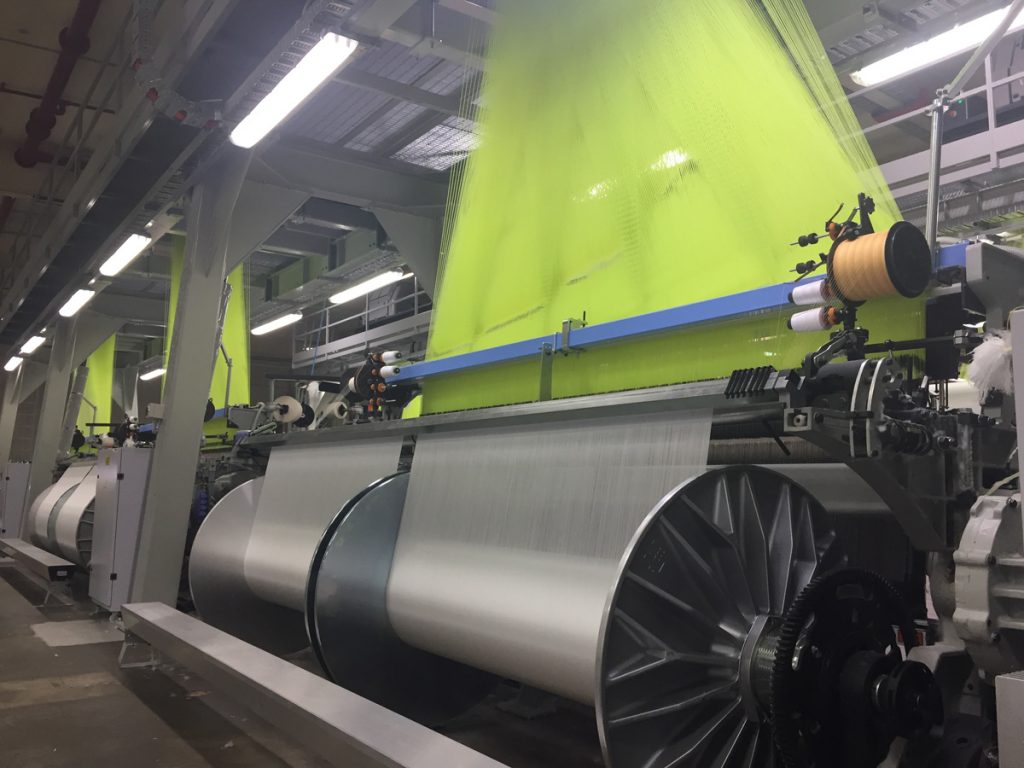
Recognised and referenced by over 400 codes, rating systems, and procurement policies worldwide, Greenguard Certification requires products to meet some of the world’s most rigorous standards for low emissions of volatile organic compounds in indoor environments.
“When a product bears the Greenguard certification, it meets strict chemical emission limits and has been tested for over 10,000 chemicals.”
“Greenguard certification indicates that a product is safe and has no nasty emissions that will emit into your environment. All of Wilson Fabrics Australian Made ranges are Greenguard certified.”
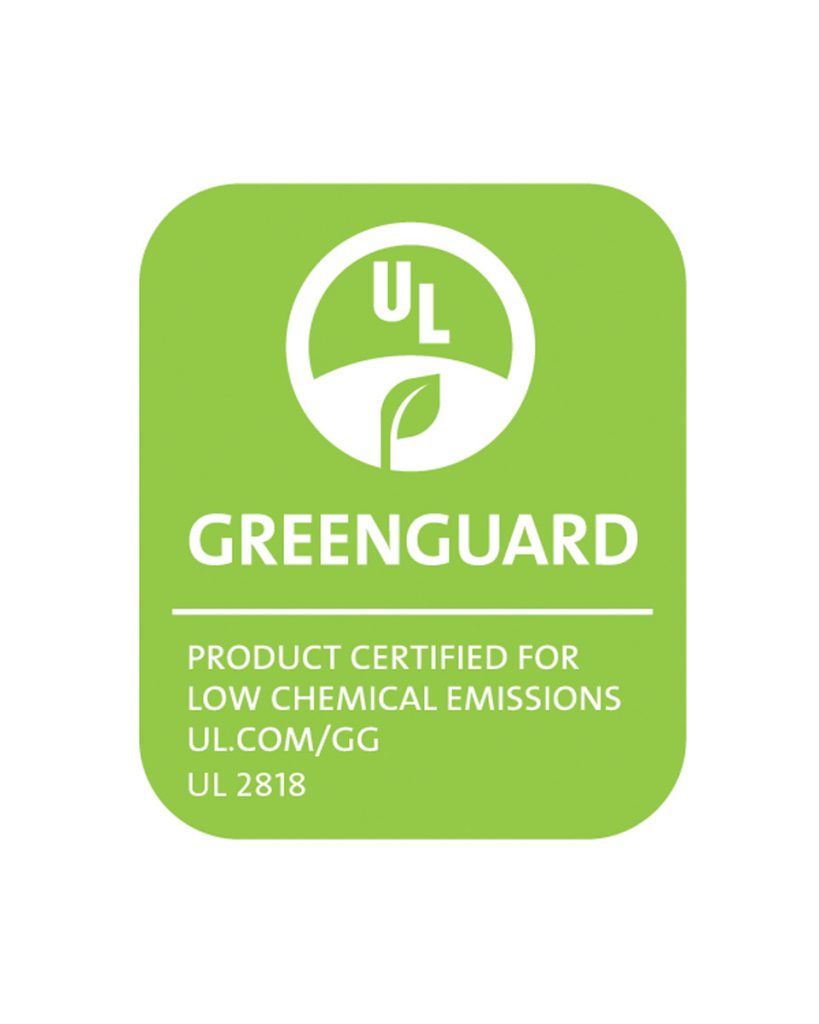
OzRoll – Green Aluminium delivers savings
Ryan Charvetto, the National Sales Marketing Manager at Ozroll says the company has made significant strides to reduce waste, enhance our environmental processes, and introduce products that are kinder to our planet in the last 12 months.
“One of our most noteworthy initiatives has been our transition to green aluminium, a groundbreaking move that has had a positive impact on our environmental footprint,” Charvetto says.
“The decision to switch to Capral LocAl Green lower carbon aluminium for our Elipso aluminium louvres and plantation shutters was a pivotal moment in our commitment to sustainability.”
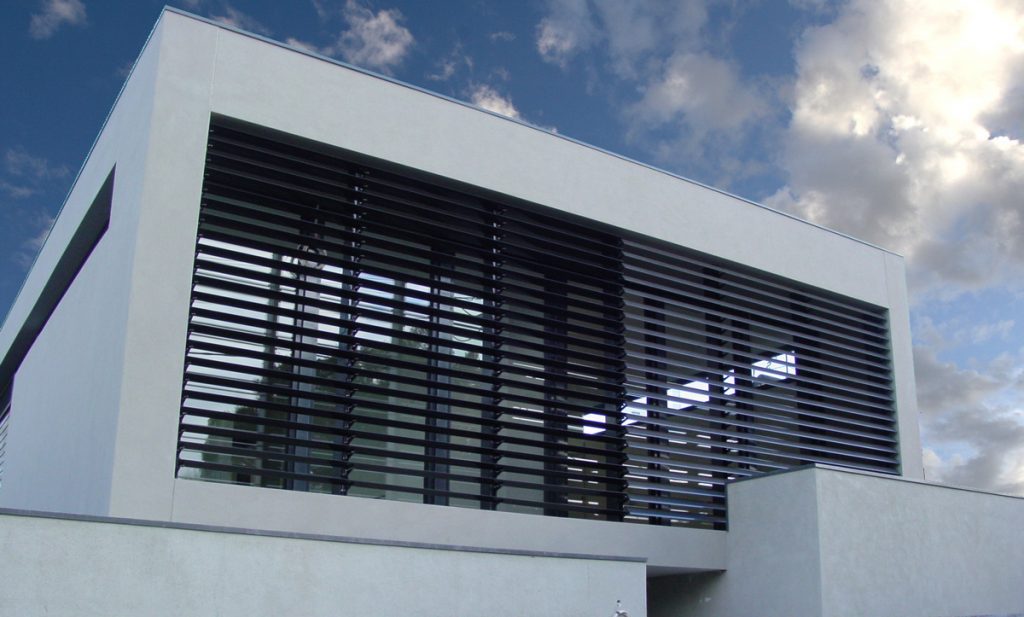
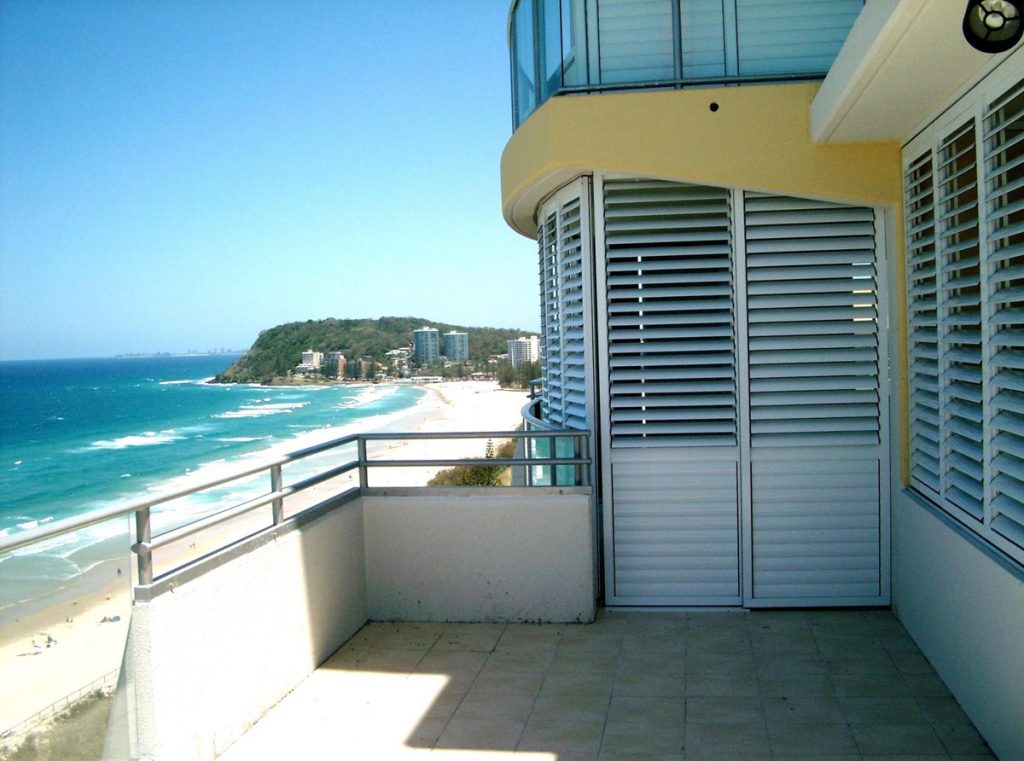
“This transition has brought about remarkable changes in our operations, with a focus on the reduction of carbon emissions. In fact, by embracing Capral’s LocAl Green solution, we have successfully reduced our annual carbon footprint by an impressive 1200 tonnes. This reduction in emissions is a testament to our dedication to environmental stewardship.”
“Furthermore, the environmental advantages of low carbon aluminium extend far beyond our manufacturing processes. Our green aluminium products deliver tangible benefits to our customers and the broader community. They are energy-efficient, promoting sustainability within the built environment, and have a significantly lower carbon footprint compared to conventional aluminium. We believe that our responsibility extends beyond our own operations and into the hands of those who use our products.”
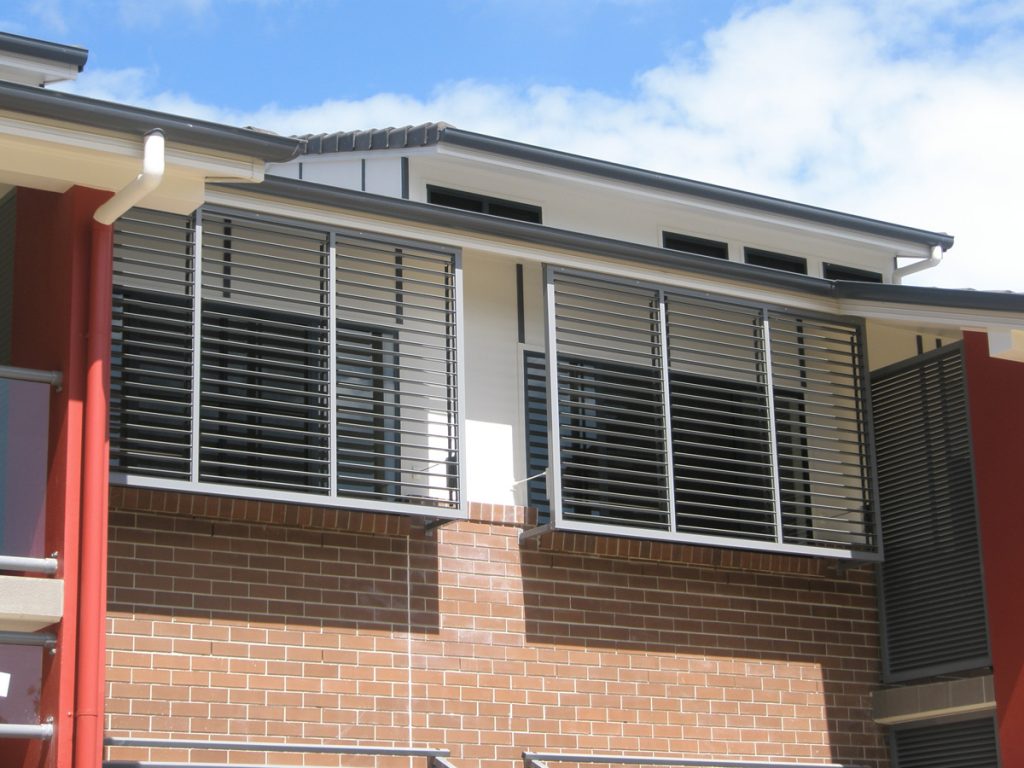
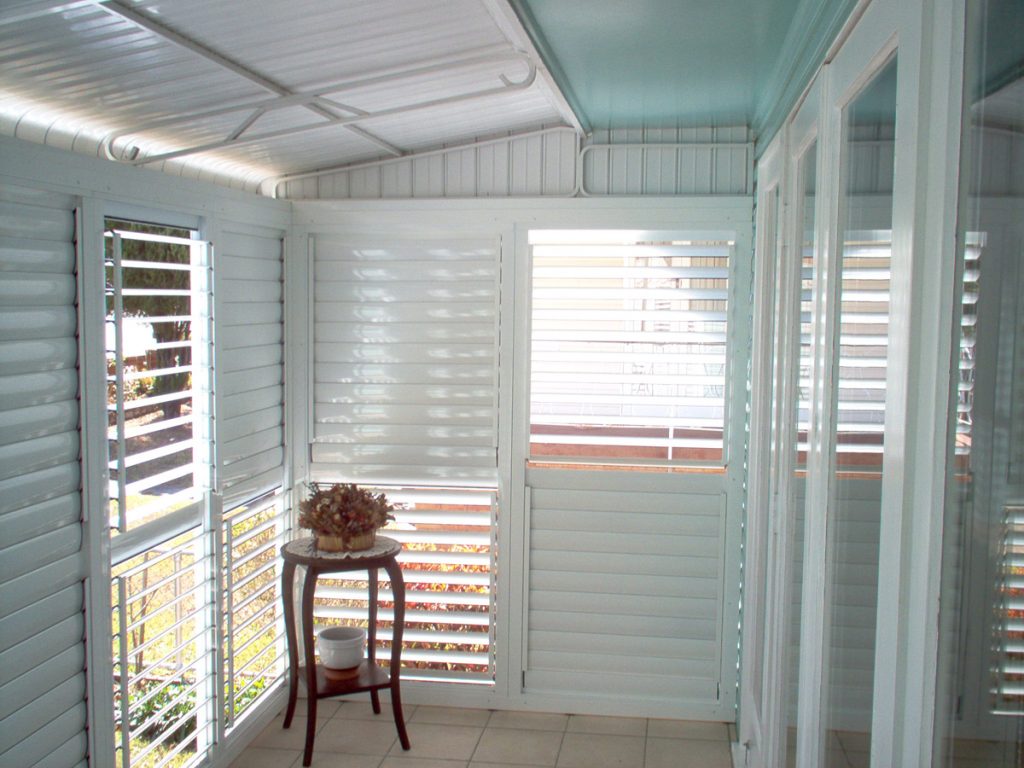
Charvetto says Capral’s LocAl Green option has become a beacon of sustainable manufacturing practices in the industry.
“By offering low carbon aluminium, we encourage our customers to make environmentally responsible choices for their projects. We believe in setting a new standard for the industry, one that emphasises both quality and a commitment to the planet.”
“As we move forward, we remain firmly committed to advancing our sustainability initiatives, reducing our environmental impact, and promoting eco-conscious choices. Together, we can build a brighter, more sustainable future for all.”
Blinds by Peter Meyer – From product to factory floor
Simon Meyer, the Managing Director of Blinds by Peter Meyer, plays a pivotal role in driving the company’s sustainability efforts. His active involvement on the BMAA sustainability committee and the marketing subcommittee for the WincovER energy rating committee reflects the company’s forward-thinking approach.
“Blinds by Peter Meyer’s commitment to sustainability starts with our factory operations. With the installation of solar panels, external blinds and a robust recycling program, we are taking significant steps to reduce energy consumption and minimise our carbon footprint.”
“But the company’s dedication to sustainability goes beyond the factory environment. We are actively exploring eco-friendly packaging solutions, emphasising the importance of making every aspect of our business eco-conscious.”
“We also offer a range of eco-friendly solutions and are continuously investing in new, sustainable product offerings. The brand new Signature fabric collection is currently being developed, which will contain fabrics made from recycled materials or produced more responsibly, contributing to long-lasting and environmentally friendly solutions.”
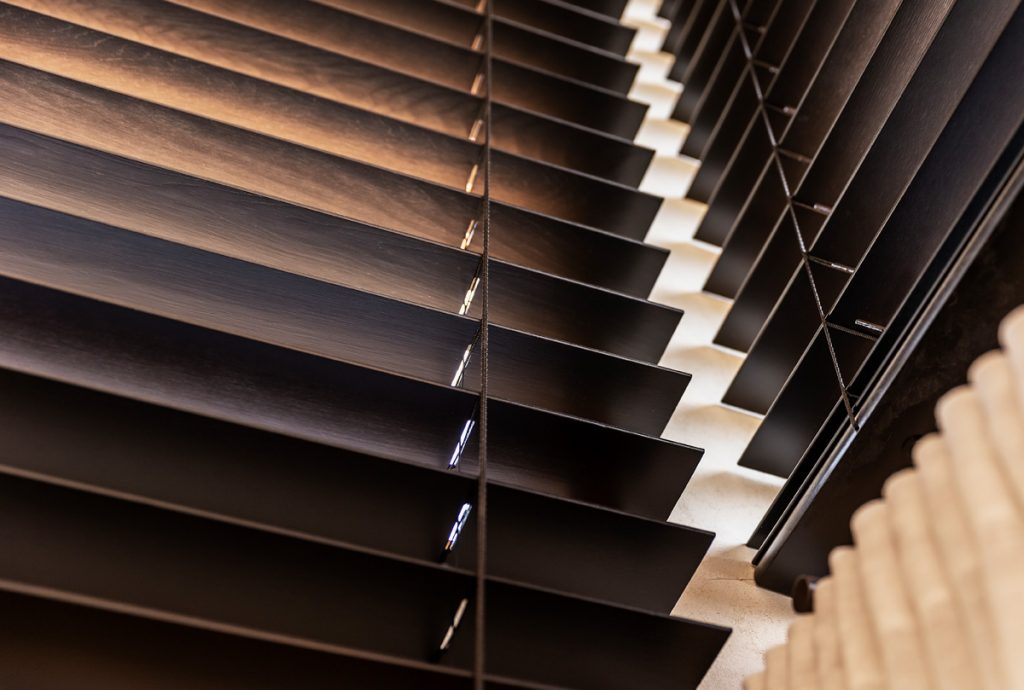
Meyer also points to the exclusive Silent Gliss collection of eco-conscious fabrics, including the Cradle-to-Cradle Bronze certified Colorama Eco range and Newlifescreen fabrics made from recycled PET bottles.
“The Colorama Eco uses waste yarn and prevents textile waste from ending up in landfills. Newlifescreen and Newlifescreen Alu collections represent a perfect marriage of solar efficiency and sustainability. Made from 100% recycled PET bottles, they not only offer excellent glare control but also contribute to reducing plastic waste. Both Colorama Eco and Newlifescreen fabrics have been rigorously tested for harmful substances and are Oeko-Tex Standard 100 certified, ensuring they are safe for both human health and the environment.”
Other sustainable products in the Blinds by Peter Meyer range include their Simply Cedar Venetians made from PEFC certified timber and the Weinor Modern Basics Blue collection, an awning fabric made with 85% recycled PET.
MYT Shutters – Sustainability through innovation
Global shutter specialist and manufacturer MYT Shutters says it is making giant leaps to become even more green.
From completely sustainable packaging for all its products, to announcing a massive change to its manufacturing facilities powered by renewable energy, the company is setting an example on how to lead the way with innovation.
“At MYT Shutters, innovation has always been the cornerstone in everything we do,” says Scott Sloan, Global Sales Director at MYT Shutters. “From the shutters we create to the machinery we build, we are always striving to improve our product and processes along with becoming more efficient and sustainable. This not only benefits the people who place our shutters in their homes, but also every one of our dealers.”
By making the change to sustainable packaging, MYT has now ensured that the local dealers only have to make one trip to recycle the packaging.
“Our new packaging has cut out 100% of all polystyrene and replaced it with our very own invention that can be recycled along with the cardboard boxes the shutters come in, which is great for us, the installers and the planet.”
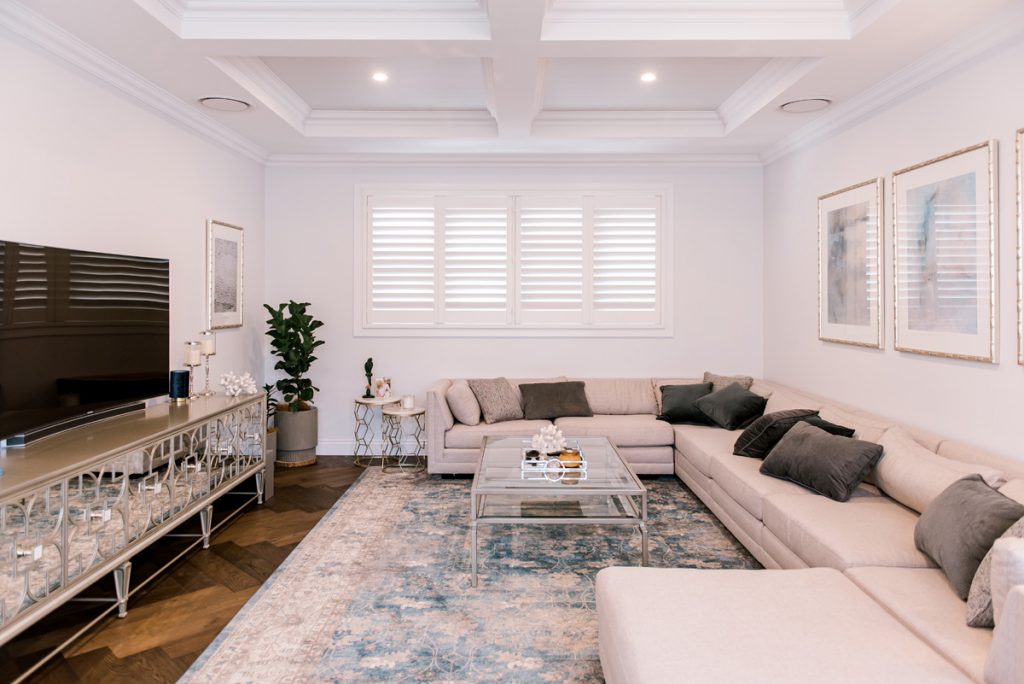
The company’s commitment to sustainable business practices not only reduces the ecological footprint of their dealers’ supply chain but also encourages a culture of sustainability.
With recent successes, MYT has now scaled up and moved to a larger, more modern factory that holds over twice the capacity as before, with a state of the art air filtration system and a whole new paint room that uses 95% less water.
“Our recent move to a modern, solar-powered factory marks a significant milestone in our commitment to sustainability and determination to lead by example. This transition not only reflects our dedication to eco-friendly practices but also underscores our pursuit of reducing our environmental impact and lowering our carbon footprint.”
“Innovative and top quality shutters, custom made in our very own factory. Manufactured and packaged sustainably, who else can say the same?”
Ricky Richards
Ricky Richards has launched Zero Stripes; a mesh designed to shake things up when it comes to outdoor traditional canvas awnings.
Alongside the product release, the 2023 Outlook Collection sample books are available together with new colourways and marketing collateral.
“For two decades Outlook has been Australia’s market leading outdoor mesh and with good reason. The Outlook Collection is the most comprehensive available with a combination of modern and contemporary colours in a variety of textures and qualities. Through constant development and innovation, the Outlook Collection delivers performance and functionality like no other.”
Outlook is manufactured by the American based global leader of solar control fabrics, Phifer Incorporated. Manufactured using stringent quality control systems and the latest technology, Outlook is the benchmark for outdoor mesh in Australia. Innovation is in the Phifer DNA with industry leading initiatives such as Dow Ecolibrium and Microban.
Joining the Outlook Collection is Zero Stripes;a selection of on-trend striped designs created to offer a breathable, light, and easy to handle version of traditional canvas primarily used for external awnings. The 0% openness provides exceptional weatherprotection and a complete visual block-out.
Like other Outlook fabrics, Zero Stripes will extend outdoor spaces for year-round living while helping lower energy costs due to its ability to naturally cool down the area and allowing cool breezes to flow through even when a blind is fully closed.
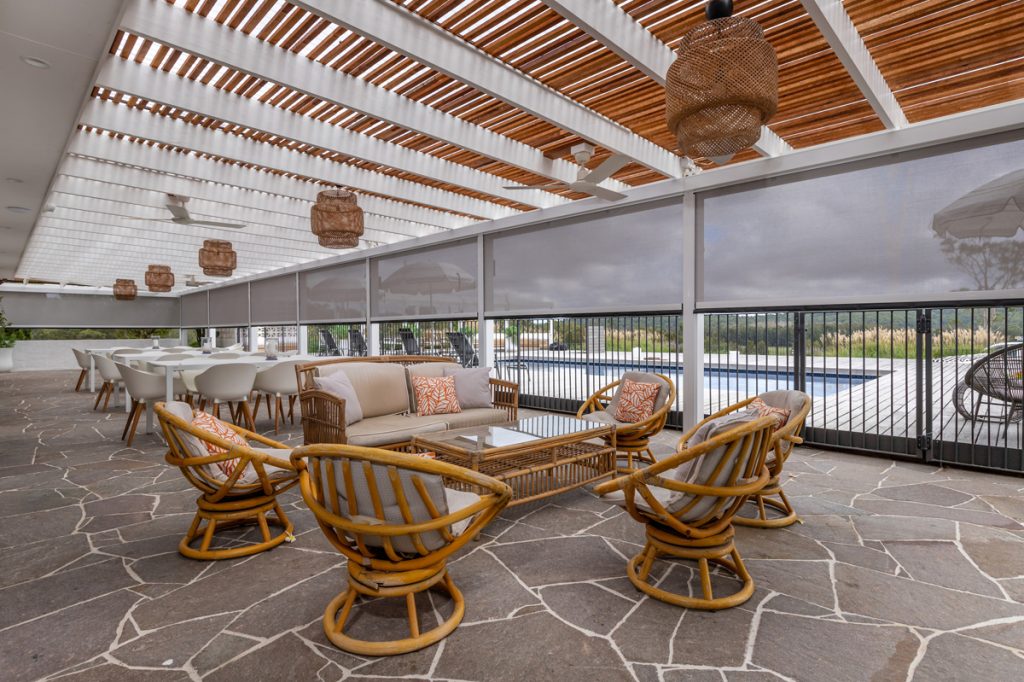
The Outlook Collection is engineered with environmental responsibility as one of its key criteria. The lead and phthalate free formulation provides low chemical emissions and is GreenGuard Gold certified. Manufactured using the bio-based Dow Ecolibrium plasticiser, Outlook mesh saves on average one litre of a petroleum for each outdoor blind or awning created.
Microban antimicrobial fabric protection has been included in the make-up of all Outlook mesh. This technology helps prevent bacterial and fungal build-up, reducing the time needed to maintain the mesh once it has been installed.
Available in three types of openness: 1%, 5% and 12% with a fourth option,0%; this mesh collection provides end users with all the choices they need. Colours include a selection inspired by Colorbond, which means you can match any existing outdoor theme, and the Outlook Designs or Zero Stripes range offers classic colour combinations to create timeless projects.
Supported with an industry leading full 10-year UV warranty, the Outlook Collection is designed for both commercial and domestic environments and is tested to relevant Australian FR standards.
More information along with ordering or stock checking for Outlook mesh and other Ricky textiles can be found at the company’s new website
www.rickyrichards.com.au.